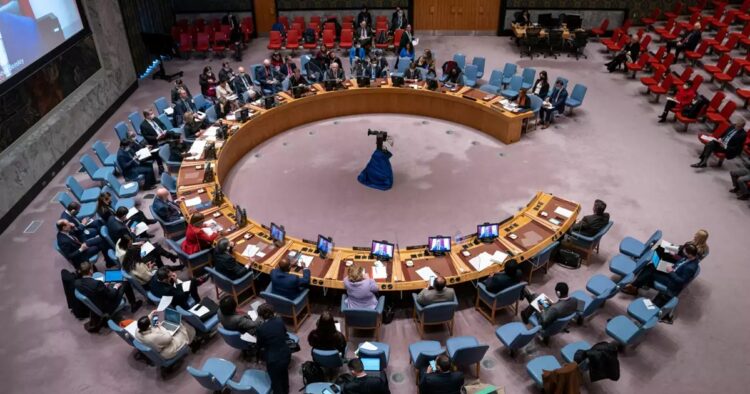In a recent UN Security Council meeting, tensions flared between the United States and its European allies against Iran and Russia over Tehran’s nuclear ambitions. The US, along with France, Britain, and Germany, accused Iran of exceeding agreed limits in its 2015 nuclear deal and failing to cooperate with international watchdogs like the IAEA.
The 2015 agreement, known as the Joint Comprehensive Plan of Action (JCPOA), aimed to curb Iran’s nuclear activities in exchange for lifting economic sanctions. However, former President Donald Trump withdrew the US from the deal in 2018, leading to ongoing disputes.
Recent reports from the IAEA revealed Iran’s enrichment of uranium to 60% purity, just shy of weapons-grade levels, and the installation of advanced centrifuges for quicker enrichment, which the US condemned as lacking credible civilian purposes.
While the US vowed to prevent Iran from becoming nuclear-armed using “all means necessary,” it emphasized its commitment to resolving concerns diplomatically. Meanwhile, European parties to the JCPOA expressed openness to diplomatic efforts to ensure Iran never develops nuclear weapons.
ALSO READ: “Julian Assange Walks Free: WikiLeaks Founder Leaves UK Jail Following US Plea Deal”
Iran, blaming US withdrawal and European failures to uphold commitments under the JCPOA, justified its nuclear actions as responses to sanctions and reiterated its program’s peaceful intent, subject to rigorous international monitoring.
Amidst calls for diplomatic revival of the JCPOA, including proposals from EU officials and Russian appeals for US de-escalation, tensions remain high as Iran’s nuclear advancements are deemed irreversible by Western powers.
As negotiations continue, the fate of the JCPOA hangs in the balance, with diplomatic efforts crucial to preventing further escalation in one of the world’s most volatile regions.

















Comments